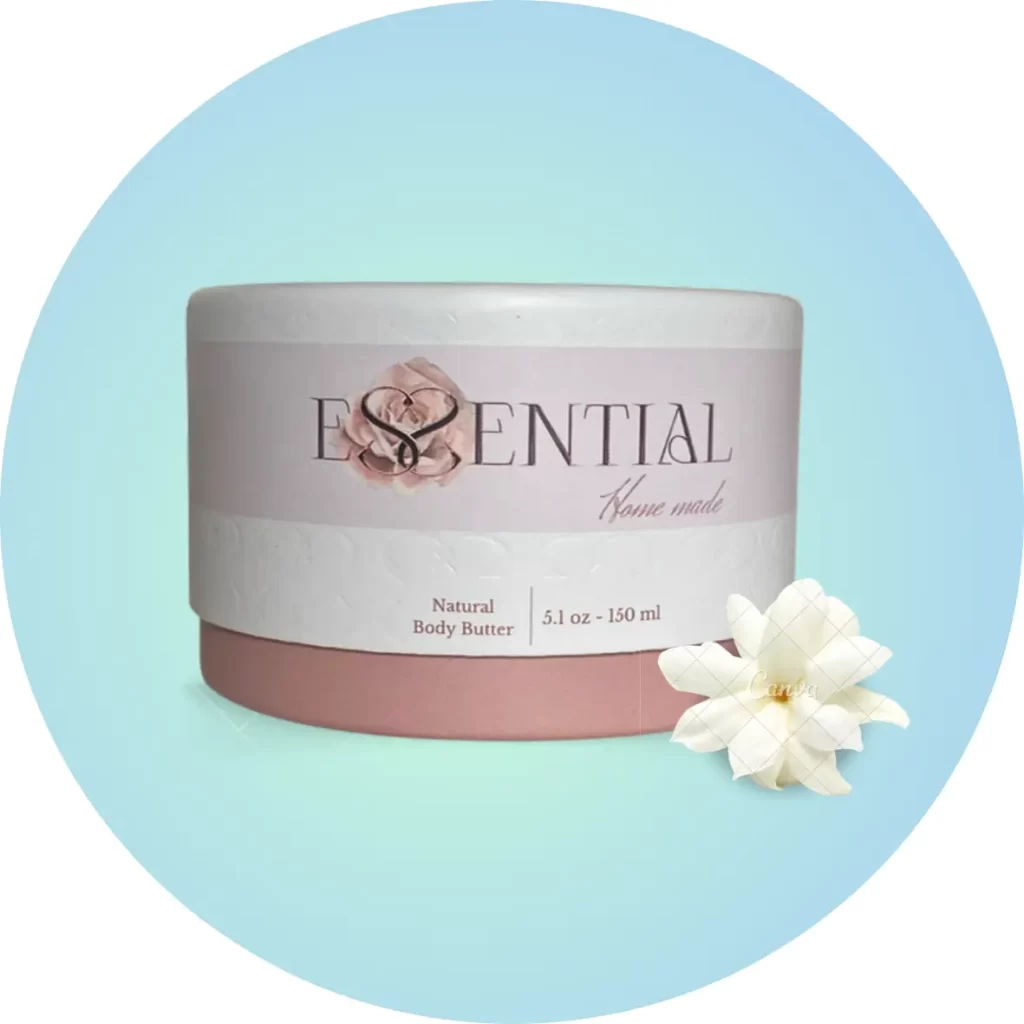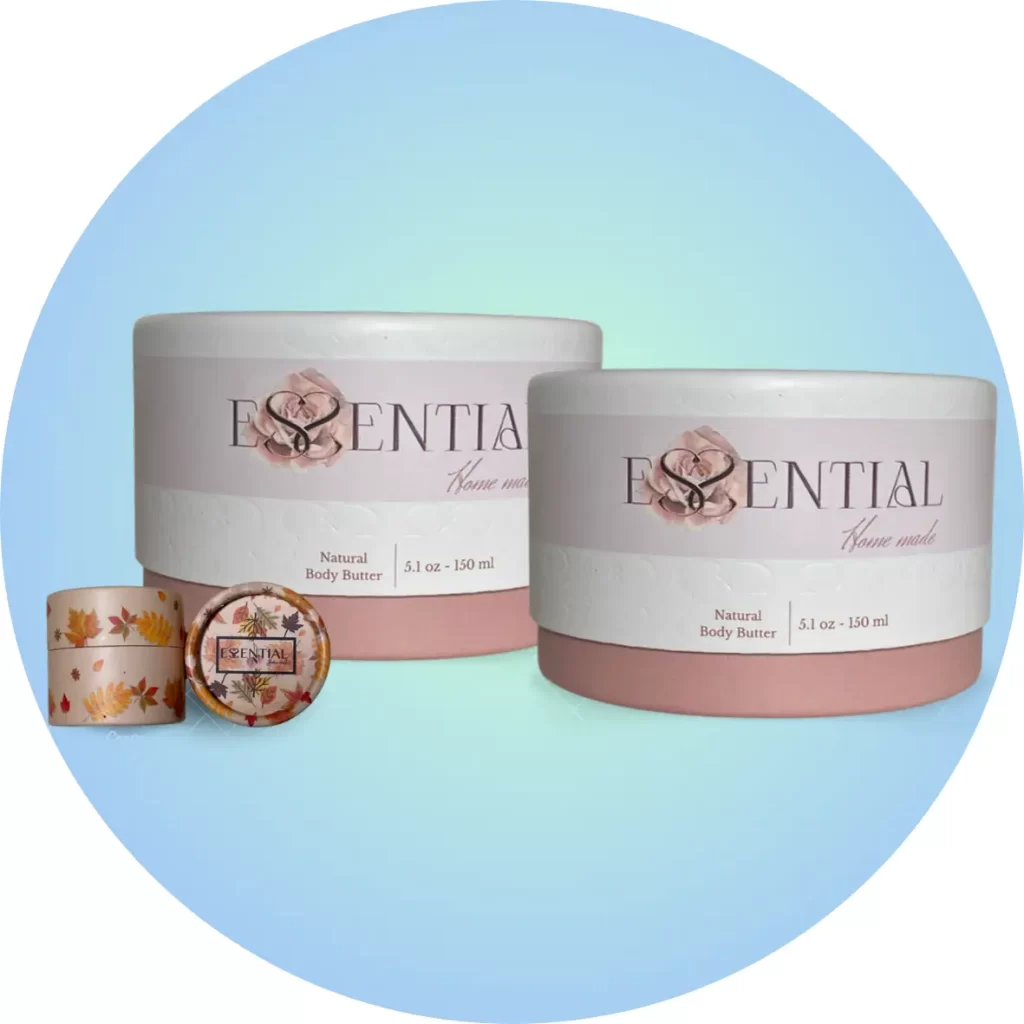Essential Body Butters FAQs.
The 16th you would never have guessed !!
Explore the World of Essential Body Butter FAQs: Have you ever wondered what lies behind the transformational power of body butter? Do you have any questions concerning application, benefits, or usage? Let us explore the mysteries together and guide you to glowing, nourished skin. Your journey to skincare clarity begins here.
Elevate Your Skin's Story with Body Butter: Unraveling Essential Secrets and Expert Tips for Radiant Beauty
1) What is body butter used for?
Body butter is used to nourish, moisturize, and hydrate the skin. It’s particularly beneficial for areas prone to dryness, such as elbows, knees, and heels. The rich, creamy texture helps lock in moisture and leaves the skin feeling soft and supple.
2) What is the difference between lotion and body butter?
The main difference lies in their consistency and level of hydration. Lotions have a lighter texture and contain more water, making them suitable for daily use and easily absorbed. Body butter, on the other hand, is thicker, richer, and contains less water, providing intense moisturization, making it ideal for dry and dehydrated skin.
3) When should I use body butter?
Body butter is best applied after a shower or bath when the skin is still slightly damp. This helps lock in moisture, allowing the body butter to penetrate deeply and provide maximum hydration. It’s also beneficial to use body butter during seasons or in climates when the skin tends to be drier.
4) Do you wash Body butter off?
No, you don’t wash off body butter. It is designed to be left on the skin to continuously moisturize and nourish. Applying it to slightly damp skin helps with absorption, and there’s no need to rinse it off. Simply allow it to be absorbed, leaving your skin soft and hydrated.
5) What are 3 benefits of body butter?
Body butter provides intense hydration, nourishment, and long-lasting moisture to the skin.
It helps improve skin elasticity and suppleness.
The best body butters contain natural ingredients that soothe and soften the skin.
6) Why is body butter so popular?
Body butter is popular due to its rich and luxurious texture, offering deep hydration for dry and dull skin.
It often contains natural ingredients and essential oils, providing a spa-like experience. You can check for luxury experience by clicking here.
7) Do you shave with body butter?
Yes, body butter can be used for shaving, as it helps provide a smooth glide and moisturizes the skin during the process.
8) Does body butter tighten skin?
While body butter hydrates and improves skin elasticity, claims about significant skin tightening vary. Results may vary based on individual skin types.
9) What is the best body butter?
The best body butter depends on individual preferences and skin needs. Look for one with natural ingredients, suitable for your skin type. Essential Body butter is 100% natural and provides moisturization and reconstruction for your skin.
10) Is it good to put body butter on itchy skin?
Yes, body butter can be beneficial for itchy skin, providing relief and hydration. Choose formulations with soothing ingredients like calendula.
11) Is it better to use body butter or moisturizer?
The choice between body butter and moisturizer depends on personal preferences. Body butter is thicker and provides a more intense level of hydration and more prolonged.
12) What is the best kind of body butter?
The best kind of body butter varies between those containing shea butter and calendula. They are good choices, because they are rich in vitamins A, E, and they have natural anti-inflammatory and antioxidants.
13) How long does a natural body butter last?
The shelf life of natural body butter varies, but it typically lasts around 6-12 months. Store it in a cool, dark place to prolong its freshness.
14) Do you put body butter all over your body?
Yes, you can apply body butter to all areas of your body that need hydration.
15) Does body butter make you smell good?
Many body butters come in scented variations, contributing to a pleasant fragrance on the skin. Preferring buddy butter with essentials oil is natural and healthy.
16) Should you use body butter in summer?
Yes, using body butter during summer is recommended to avoid a heavy feel on the skin. It is very good for keeping your skin moisturized and prevents the loss of water that occurs when there is sunburn.
17) Does body butter get hard?
In cooler temperatures, body butter may solidify but will soften upon contact with warm skin.
18) Do you use body scrub or body butter first?
Body scrub is typically used first to exfoliate the skin, followed by body butter for moisturization.
19) Does body butter need to be refrigerated?
No, body butter doesn’t need to be refrigerated, but storing it in a cool, dark place helps maintain its quality.
20) Why apply body butter to damp skin?
Applying body butter to damp skin enhances absorption, allowing the product to seal in moisture more effectively.
21) How do you dispose of body butter?
Essential Body Butter has eco-friendly packaging. Dispose of empty body butter containers by recycling them.
Unveiling the Marvels of Calendula: Essential Insights and Expert Discoveries for a Glowing Complexion
22) What is calendula good for?
Calendula is known for its various skin benefits. It has anti-inflammatory and antimicrobial properties, making it effective for soothing irritated skin, reducing redness, and promoting overall skin health. It’s often used in Body Butters for its calming effects.
23) What is homeopathic calendula used for?
Homeopathic calendula is used for its healing properties. It’s believed to aid in wound healing, reduce inflammation, and promote the regeneration of damaged skin tissues. It’s commonly used in homeopathic remedies for skin conditions and Body Butters.
24) What are the cons of calendula?
Calendula is generally considered safe for topical use. It’s advisable to perform a patch test before widespread use.
25) Why is calendula anti-inflammatory?
Calendula contains compounds like flavonoids and triterpenoids, which contribute to its anti-inflammatory properties. These compounds help reduce inflammation by inhibiting certain enzymes and modulating the body’s immune response, making it beneficial for soothing inflamed skin. Combined with Body Butter is a healthy treatment.
26) What type of skin is calendula good for?
Calendula is suitable for various skin types, especially sensitive or dry skin. Its gentle and soothing nature makes it effective for addressing issues like redness, dryness, and irritation. It’s commonly found in Body Butters designed for those with sensitive or easily irritated skin.
Discovering Rosehip's Secrets: Essential Insights and Expert Knowledge for Luminous Skin
27) What does rosehip oil do for your skin?
Rosehip oil is renowned for its skincare benefits. It’s rich in essential fatty acids, antioxidants, and vitamins, promoting skin regeneration, reducing the appearance of scars and fine lines, and providing intense hydration. It’s suitable for improving overall skin texture and tone. When you combine with Body butter is a beauty glow.
28) What type of skin rosehip is good for?
Rosehip oil is suitable for various skin types, including dry, sensitive, and aging skin. Its hydrating and regenerative properties make it effective for addressing concerns like dryness, wrinkles, and uneven skin tone. It’s versatile and well-tolerated by many individuals.
29) Who should not use rosehip oil?
While rosehip oil is generally safe for most people, individuals with specific allergies to rose-related plants may want to perform a patch test before use. Additionally, those with acne-prone skin should use it cautiously, as it can be comedogenic for some individuals.
30) Is it okay to use rosehip oil every day?
Yes, many people incorporate rosehip oil into their daily skincare routine. Its lightweight texture allows for easy absorption, and daily use can contribute to improved skin hydration, reduced signs of aging, and a more radiant complexion. However, as with any skincare product, individual reactions may vary, so it’s recommended to start gradually and observe your skin’s response.









